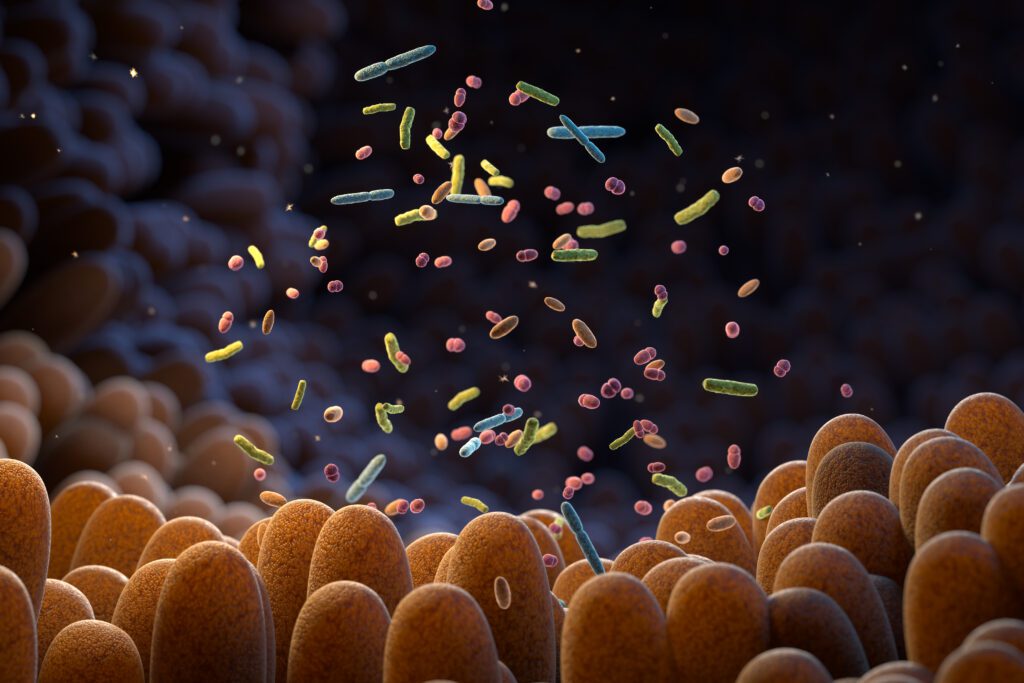There are plenty of adages extolling the importance of the gut: “an army marches on its stomach,” “the way to a man’s heart is through his stomach,” and “go with your gut feeling,” are just a few. Doctors and scientists are adding another: “gut health affects overall health.”
There are trillions of bacteria, viruses, and fungi living in your intestines; collectively they are referred to as the gut microbiome. While scientists don’t understand the exact role of each microorganism in your gut, they do know that they are extremely important for the immune system, heart, weight, and many other aspects of health. Probiotics are “good bacteria in the gut” that aid digestion and more, making them an important part of your overall health. Take our quiz and become a pro at everything to do with probiotics.
1. Where can you find probiotics?
A. In fermented foods like apple cider vinegar, cheese, kimchi, kombucha, miso, and sauerkraut.
B. Added to food products, such as some cereals, juices, milks, nutrition bars, smoothies, and infant and toddler formulas.
C. Available as dietary supplements, such as capsules, powders, liquids, and more.
D. All of the above
2. True or false? Because probiotics must be consumed alive to have health benefits and they can die during their shelf life, you should look for products labeled with the number of colony-forming units (CFUs) at the end of the product’s shelf life, not at the time of manufacture.
3. Which of the following are ways probiotics MAY improve your health, as shown through scientific research?
A. Prevent or treat diarrhea caused by infections and taking antibiotics.
B. Improve symptoms of irritable bowel syndrome and inflammatory bowel disease (IBD), such as ulcerative colitis and Crohn’s disease.
C. Boost the immune system and reduce inflammation and allergies, such as for those with atopic dermatitis.
D. Reduce total and LDL (bad) cholesterol levels and combat obesity.
E. All of the above
4. Which of the following is NOT a name of a common probiotic?
A. Lactobacillus acidophilus
B. Bifidobacterium bifidum
C. Miracullus organisium
D. Streptococcus thermophilus
5. What do doctors recommend if you are interested in adding probiotics to your diet?
A. Talk to your doctor about probiotics.
B. Find the right probiotic strain for your individual needs.
C. Follow storage instructions, as some probiotics need to be refrigerated.
D. Check the expiration date of the probiotic you’re using.
E. Try foods over supplements. Either is acceptable; supplements generally have higher concentrations of probiotics, but foods provide a nourishing environment in which healthful bacteria thrive and release important byproducts such as short-chain fatty acids.
F. All of the above
6. What should you look for if you’re trying a probiotic supplement?
A. In general, having a mix of probiotic strains in a supplement is better than just having one strain.
B. Choose probiotics that have undergone testing and research, as they’re not regulated by the U.S. Food and Drug Administration (FDA); these will likely not be the cheapest probiotics.
C. Look for a probiotic that is encapsulated with a food source, such as inulin, so it has something to feed off of and remain viable while sitting on the shelf.
D. Check the probiotic’s CFU at the end of the product’s shelf life, and ensure that any storage requirements—such as being refrigerated—are being followed by the seller.
E. All of the above
7. True or false? Common probiotics are unlikely to cause harm in healthy people, with gas being the most severe symptom, but they should not be given to preterm infants or people who are severely ill or immunocompromised without a doctor’s approval.
8. What are other ways to improve your gut biome?
A. Eat a diet rich in nutrients and high in fiber — including fruits, vegetables, and whole grains. Probiotics feed off of fiber and build colonies that will keep your gut in a healthy balance.
B. Limit intake of artificial sweeteners. Some evidence has shown that artificial sweeteners like aspartame increase blood sugar by stimulating the growth of unhealthy bacteria.
C. Eat prebiotic foods like artichokes, bananas, asparagus, oats, and apples. Prebiotics are a type of fiber that stimulates the growth of healthy bacteria.
D. Eat foods rich in polyphenols, like red wine, green tea, dark chocolate, olive oil, and whole grains. Polyphenols are broken down by the microbiome to stimulate healthy bacterial growth.
E. All of the above
compiled by ERIKA ALDRICH / Information from the National Institutes of Health, Mayo Clinic, Healthline, and the Cleveland Clinic.
ANSWERS:
- D
- True
- E
- C
- F
- E
- True
- E
